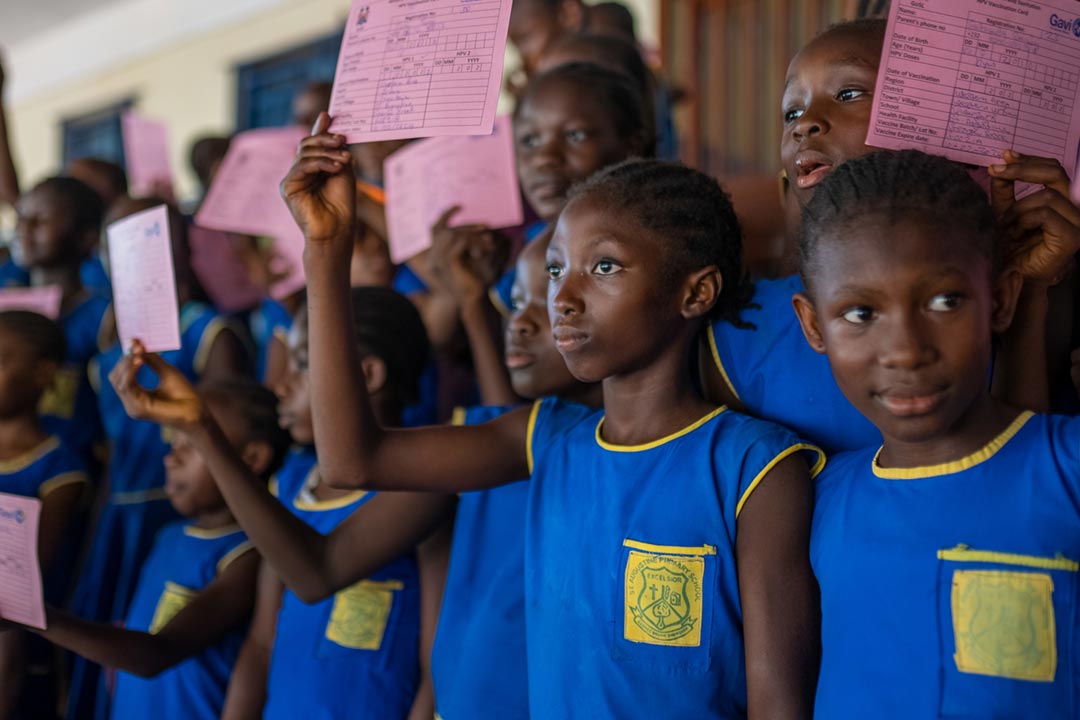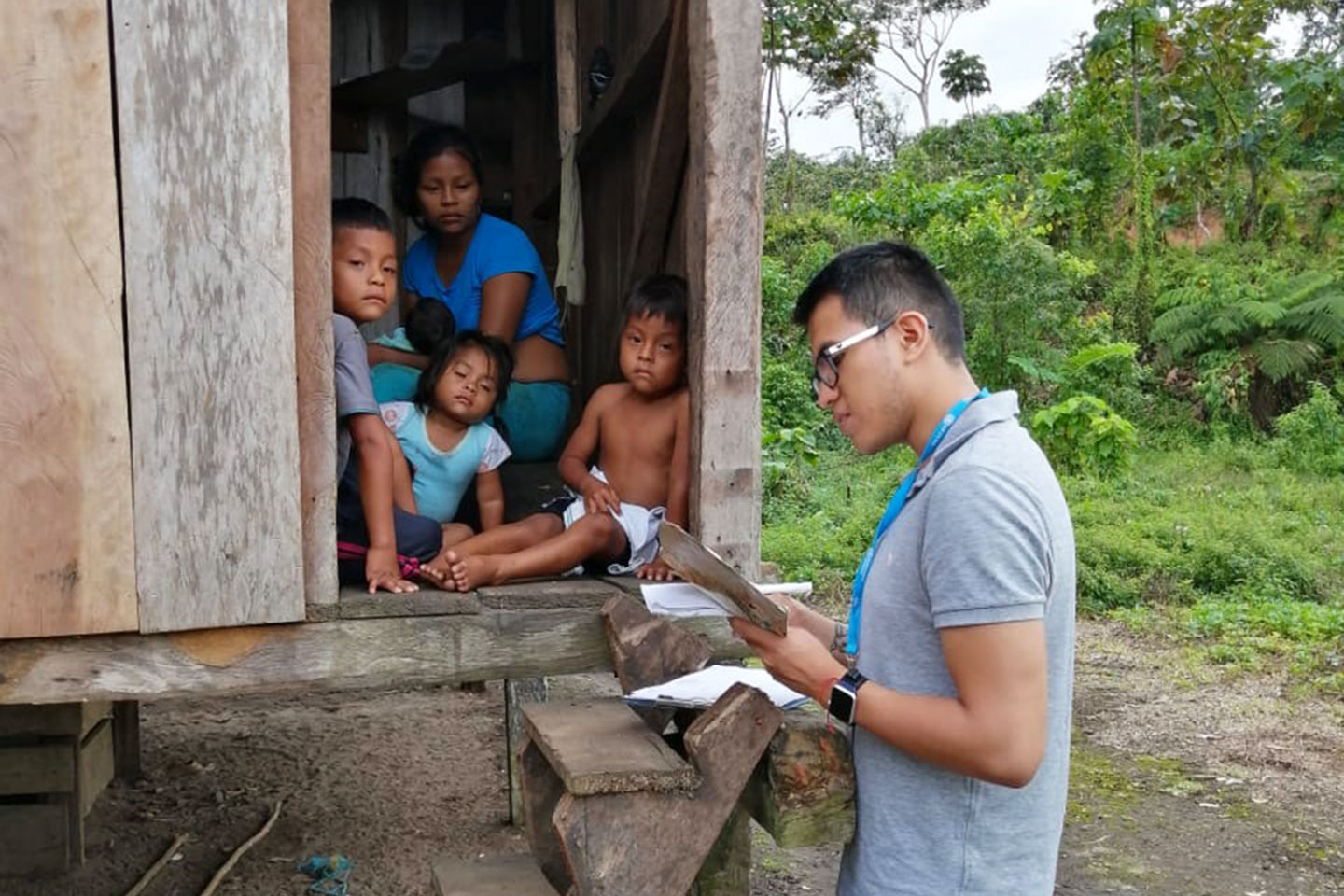A Platform for Action: Civil Society and Parliamentarians Unite for Health Equity in Zambia, Kenya and Sierra Leone
In a landmark event co-organized by the Partnership for Maternal, Newborn, and Child Health (PMNCH) and Gavi, the Vaccine Alliance, a group of civil society organizations (CSOs) and parliamentarians from Zambia, Kenya, and Sierra Leone came together to discuss strengthening community advocacy for health equity.
- 12 December 2024
- 5 min read
- by Partnership for Maternal, Newborn and Child Health (PMNCH)

The dialogue underscored the importance of partnerships in advancing health outcomes, particularly by increasing access to the human papillomavirus (HPV) vaccine. Grounded in the principles of the WHA resolution on reducing maternal, newborn, and child mortality, and Gavi's ambitious goal to reach 86 million girls with the HPV vaccine by 2025, the event fostered a shared commitment to strengthening primary health systems and breaking down all sorts of barriers to equitable access to health.
Watch event recording
'
We, as members of parliament, deeply value the collaboration with Gavi and partners like PMNCH, particularly in how civil society has worked closely with us to advance health equity in our countries.'
Hon. Beatrice Elachi, MP, National Assembly of Kenya
The discussions emphasized the urgent need for accessible, integrated, and equitable health services, showcasing leadership, knowledge exchange, and context-tailored approaches to address critical health challenges.
Good Practices: Transformative Community Engagement
The webinar spotlighted effective strategies across Zambia, Kenya, and Sierra Leone to overcome barriers to HPV vaccination. Parliamentarians and civil society leaders shared examples of community-driven initiatives, including peer education, health worker-led outreach, and culturally tailored advocacy campaigns.
The major challenges that we face, especially at the grassroots level, are lack of accurate and consistent information on what HPV is, and a lot of myths and misconceptions around the HPV vaccine… for grassroots communities, we use community-based approaches like community dialogues and engaging community leaders as champions to cascade information.
Mercy Wanjiku Njaagah, Advocacy Officer, Ambassador for Youth and Adolescent Rep Health Programme – AYARHEP Kenya
In Zambia, partnerships between parliamentarians and civil society are being explored to ensure HPV vaccination campaigns effectively reach underserved communities, with community health workers playing a pivotal role in raising vaccine awareness. In Kenya, intergenerational forums have successfully bridged the gap between traditional and modern health practices, fostering greater vaccine acceptance. Meanwhile, in Sierra Leone, collaborations between parliamentarians and CSOs focus on engaging community leaders to address misconceptions, reduce stigma, and increase demand and uptake of the HPV vaccine.
As Hon. Tamba Simeon Johnny, MP from Sierra Leone observed, public vaccination campaigns, like vaccinating his own daughter, dispelled myths and fostered trust in the population. These efforts exemplify how leadership and collaboration at the local level can create scalable solutions for global challenges.
Lived Experiences: Leadership in Action
The personal stories shared during the event were powerful reminders of the role of leadership in transforming health outcomes. Hon. Emeldah Munashabantu of Zambia recounted the loss of a constituent to cervical cancer, reinforcing her advocacy for universal HPV vaccine access. Similarly, Hon. Beatrice Elachi of Kenya celebrated the critical contributions of grassroots organizations in shaping gender-responsive health policies.
Have you read?
As parliamentarians, it's our duty, especially as female and young Parliamentarians, to ensure that the policies being made address the issues of adolescent girls and women. We need to be champions ourselves… We must get down to the ground, speak to the girls in their schools, hold community meetings, and address myths and misconceptions surrounding the vaccine—whether cultural, religious, or traditional.
Hon. Emeldah Munashabantu, Member of Parliament, National Assembly of Zambia
Their narratives highlighted not only tangible barriers, such as infrastructure gaps and funding constraints, but also the critical role of political will in driving change and the need for representatives of the people to serve as role models.
A Shared Path Forward
The dialogue culminated in a shared call to action, identifying key priorities:
- Empowering youth advocacy. Engaging young people as health champions through peer-led programs and digital campaigns, enabling them to advocate effectively within their communities and influence their peers by fostering relatable, youth-friendly messaging.
- Culturally sensitive engagement. Strengthening community involvement with localized strategies to counter vaccine hesitancy, ensuring messages are adapted to respect cultural beliefs, traditions, and language while addressing myths and misconceptions directly.
- Leveraging innovation. Utilizing digital platforms and media commonly used by adolescents to share accurate health information and counter misinformation.
- Increasing domestic funding. Advocating for enhanced budget allocations for health services, particularly for vaccination campaigns, through collaboration between civil society and members of parliament, emphasizing the long-term economic and social benefits of investing in preventive healthcare.
- Fostering collaboration. Bridging the gap between parliamentarians and civil society by cultivating partnerships that align efforts toward shared goals, leveraging the strengths of both constituencies to champion policies and initiatives that prioritize community health and equity.
These recommendations speak volumes on the willingness, commitment and resolve to focus on collaboration, mutual accountability, and systemic solutions to advance universal health coverage. Activities are already underway on several of these calls to action, with more progress to come.
'With the support of the Gavi, we have been engaging with parliamentarians and we are working with Global Health Advocacy Incubator advocating to the parliamentarians to make sure that policy changes are made, such as the issue of access to vaccines.'
Friday Nkhoma, Manager, Churches Health Association Zambia (CHAZ)
Collaborative Advocacy for Action
The dialogue underscored the potential of collective leadership in addressing health inequities. By uniting parliamentarians, civil society, and global partnerships, it reinforced a shared vision of equitable access to life-saving vaccines.
Hon. Twaambo Elvis Mutinta of Zambia summed it up aptly: 'Through collaboration, we can address gaps and ensure no one is left behind.' The momentum generated by this dialogue must now translate into actionable policies and sustained investment, paving the way for a healthier, more equitable future for women, children, and adolescents.
Constructive dialogue and collaboration between civil society and parliamentarians serve as a model of how partnerships and shared responsibility can drive transformative change, ensuring that health equity becomes not just an aspiration, but a reality.







